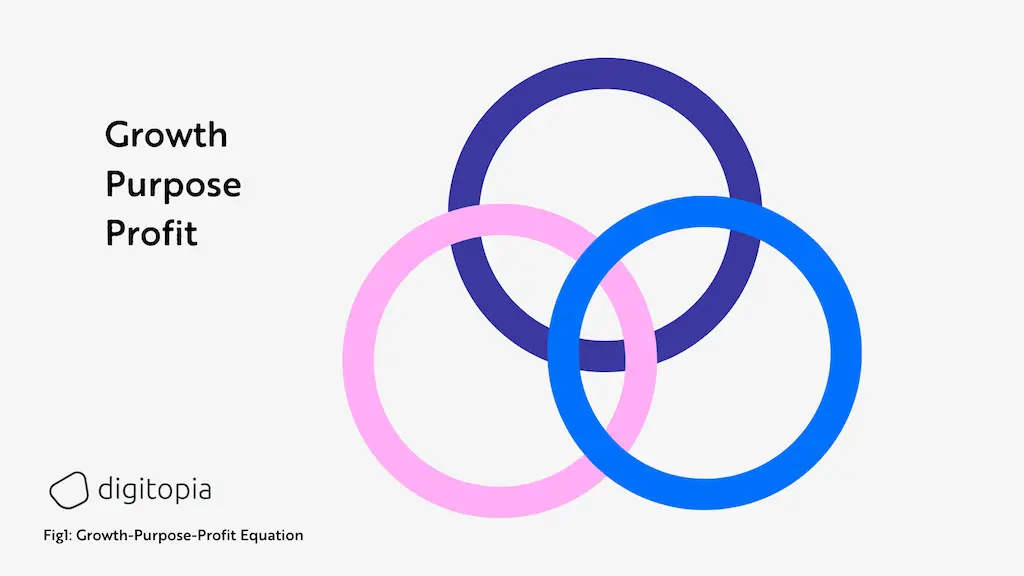
A Great New Paradigm

With the holy equation of growth-purpose-profit emerging as the real challenge to overcome and new dimensions entering into the measurement and reporting space, a new type of social and environmental value is emerging from the remnants of the old economy. Albert Einstein understood this almost 75 years ago. He said: “A new type of thinking is essential if mankind is to survive and move toward higher levels…” ~ N.Y. Times, 1946. To survive as a species, it is essential that we shift paradigms, developing ways of thinking (and behaving) that are more aligned with how human life and nature’s systems work.
So, if we can look past the headlines of ‘the Great Reset’, ‘the Great Resignation’, or indeed ‘the Great Something’, we see the same persistent fundamental truths and facts of humanity. We just need to remember and look back through our evolution – physically and emotionally – to realize the consistent ‘Great’ness about every age. It is our adaptability and capacity to further our understanding of the laws of the universe, the codes of nature and our own biology.
The path to prosperity for humanity is a combination of many factors, sustainability is one of them. Today we are faced with a deeper transformation need; Long term purpose and values are replacing current business metrics. Smart people and organizations are building their boats with a new perspective, a new strategy, a new business model that will reshape the rules in business world. The game is on for a new economic model; the real question is:
How do we ensure the new playing field is more just and democratic? How do we ensure the ‘’path to prosperity for all” transforms the wealth inequality we are facing today?
Sustainable Development Goals – Measureable or unmanageable?
Many are looking at the UN 2030 Sustainability Agenda with its 17 Sustainable Development Goals (SDGs) as a universal roadmap to deal with encroaching environmental problems around the world. Such an ambitious agenda and structural system is unwieldy, and must be aligned to every stakeholder and onboard them in a sustained way.
In spite of grand commitments, it is proving hard to find a strong leverage point across all the great manifestos and commitments made by nations and organizations on how to first even the field and measure sustainability progress consistently. That being said, I choose to be optimistic about the future and work being done to improve our global ecosystem.
Stay Positive
And of course, there are good reasons for a positive state of mind. First, we have the power of technology and the innovation behind ‘Tech for Good’ startups. Second is the current and next generations, with the social entrepreneurs and intrapreneurs being a great catalyst in bringing change to our incumbent organizations.
These groups are critical of the current status quo because they do not fake it or dress up for Green Washing Parties, instead behaving as authenticly as possible. They drive change through initiatives like the UN’s SDGs and the European Commission’s Green Deal. Beyond this, and perhaps in an even more tangible way, their work is mobilizing a systemic approach to the implementation of a new era driven by driving a balance between society, economy and ecology. But, to achieve these goals and to transform our financial and economic system into a sustainable and inclusive one, a profound transformation is required and we need everyone to contribute, from established companies and startups, as well as investors and opinion leaders.
Reality Check
Business contribution to global goals is not enough. This is not only a perception of society, C-level executives admit it in research materials and their own statements. Developing systems transformation and collaboration in line with the ambition of 2030 can only be achieved with a new lens for responsible leadership, in which leaders drive disruptive change within and beyond their organizations. Being a change agent suddenly has become the next cool thing in the C-world and we see more and more CEO’S declaring their commitments personally.
The benefits of not ‘faking it’
John Elkington developed the concept of a ‘Green Swan’. writing his book “Green Swans: The Coming Boom in Regenerative Capitalism” on the subject. A Green Swan refers to a profound market shift delivering exponential progress in the form of economic, social, and environmental wealth creation. This kind of thinking resonates with the optimistic view that the sustainability revolution will lead to prosperity by generating new markets and leading balanced growth. According to a forecast by Business and Sustainable Development Commission, achieving the global goals opens up US$12 trillion of market opportunities across four economic systems. These are food and agriculture, cities, energy and materials, and health and well-being. They represent around 60 percent of the real economy with a potential to create 380 million new jobs.
Technology is one of the ways we can realize above the ambitions and it is particularly relevant in achieving the zero-carbon emissions pledge. We need to find nature-based solutions to replace old economic models. Circular, de-carbonised, collaborative and inclusive business models – to name just a few – are emerging business approaches that represent our best chances to create a sustainable economy. But they are complex, pioneering and can’t be executed in isolation.
What is the Meaning of Ecosystems in the Business World?
The future will be about sustainable business, and collaboration is the key to cultivate new markets with Value Driven Mindsets. Now is the time to learn to act in collaboration with ecosystem partners. Real measurable progress on environmental, social and governance issues is possible through innovative business models, partnerships and technology.
Other options clearly do not lead to a prosperous future for all.
The challenge for humanity now is to transform and transcend our fractured views of the world, to shift paradigms and return to a more wise and holistic understanding of ourselves, as well as our place in the universe. Almost two thousand years ago, the Roman philosopher Cicero, spoke of the universe as a unified field of interdependent relationships, writing “Omnia vivunt, omnia inter se conexa”
‘‘Everything is alive, everything is interconnected.”
Shall we get started?

